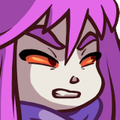On the 24th of october in 1975, approximately 90% of Icelandic women struck for equality, not attending jobs or doing any domestic work. Iceland passed an equal pay law the following year, but the strike has been repeated on its anniversary several times since, such as in the years 2005, 2010, and 2016.
The strike was planned by "The Women's Congress", which had met on June 20th and 21st earlier that year. Among the reasons given for going on strike were pay inequality, lack of women in union leadership, and a general lack of recognition for the value and skill of domestic labor.
During the work stoppage, also known as "Women's Day Off", 25,000 people gathered in Reykjavik, Iceland's capital city, for a rally. There, women listened to speakers, sang, and talked to each other about what could be done to achieve gender equality in Iceland.
Women from many different backgrounds spoke, including a housewife, two members of parliament, and a worker. The last speech of the day was by Aðalheiður Bjarnfreðsdóttir, who "represented Sókn, the trade union for the lowest paid women in Iceland", according to The Guardian.
In 1976, the Icelandic government passed an equal pay law, and the country elected its first female President, Vigdís Finnbogadóttir, five years later in 1980.
The 1975 Women's Strike also helped inspire the 2016 "Black Monday" anti-abortion ban protests in Poland, as well as the "International Women's Strike", single day work stoppages on March 8th, 2017 and 2018.
Megathreads and spaces to hang out:
- 📀 Come listen to music and Watch movies with your fellow Hexbears nerd, in Cy.tube
- 🔥 Read and talk about a current topics in the News Megathread
- ⚔ Come talk in the New Weekly PoC thread
- ✨ Talk with fellow Trans comrades in the New Weekly Trans thread
- 👊 Share your gains and goals with your comrades in the New Weekly Improvement thread
reminders:
- 💚 You nerds can join specific comms to see posts about all sorts of topics
- 💙 Hexbear’s algorithm prioritizes comments over upbears
- 💜 Sorting by new you nerd
- 🌈 If you ever want to make your own megathread, you can reserve a spot here nerd
- 🐶 Join the unofficial Hexbear-adjacent Mastodon instance toots.matapacos.dog
Links To Resources (Aid and Theory):
Aid:
Theory:

picking up on the aura of latent misogyny emanating from naruto (manga, not necessarily the character), like, it's weirdly omnipresent
Misogyny is pretty much everywhere in shonen and it fucking sucks. Even when there isn't explicit bigotry, the roles and characters of women are often more shallow and sexualized than men. Fujimoto is the only male mangaka I can think of who writes women as well, if not better than, men.
Actually Attack on Titan isn't really misogynistic. It is fascist though so it gets 0 points
like I've been totally burnt by MHA, but at least for horikoshi (not a defense of his writing or the misogyny in MHA) it was like Mineta, some weird writing in the sports festival, designs, the imbalance on the deaths side, etc. barring the former, little things. social/industry ambient misogyny (except for mineta, what a trashfire character, extremely unhinged, holy shit)
things. social/industry ambient misogyny (except for mineta, what a trashfire character, extremely unhinged, holy shit)
for Kishimoto it's much more prevalent. it's not exactly incel but it's in the middle ground between that and MHA (which is already not great w/rt it!)
it's like, to be entirely psychoanalytic with zero basis, as I criticized literally yesterday with horikoshi I believe he believes he's not a misogynist and all of his bullshit is a result of the pure concentrated harry-potterite myopic libshit that his writing communicates, with kishimoto I think there's legitimately cemented reactionary viewpoints behind this bullshit because holy shit it's bad in a really consistent and constant way
with horikoshi I believe he believes he's not a misogynist and all of his bullshit is a result of the pure concentrated harry-potterite myopic libshit that his writing communicates, with kishimoto I think there's legitimately cemented reactionary viewpoints behind this bullshit because holy shit it's bad in a really consistent and constant way
naruto is like if every man had a particle of Master Roshi lodged inside of them and also all of the women have to 'discard their vanity' to be taken even somewhat seriously as a character by the mangaka themselves
jfc just got to chapter 91